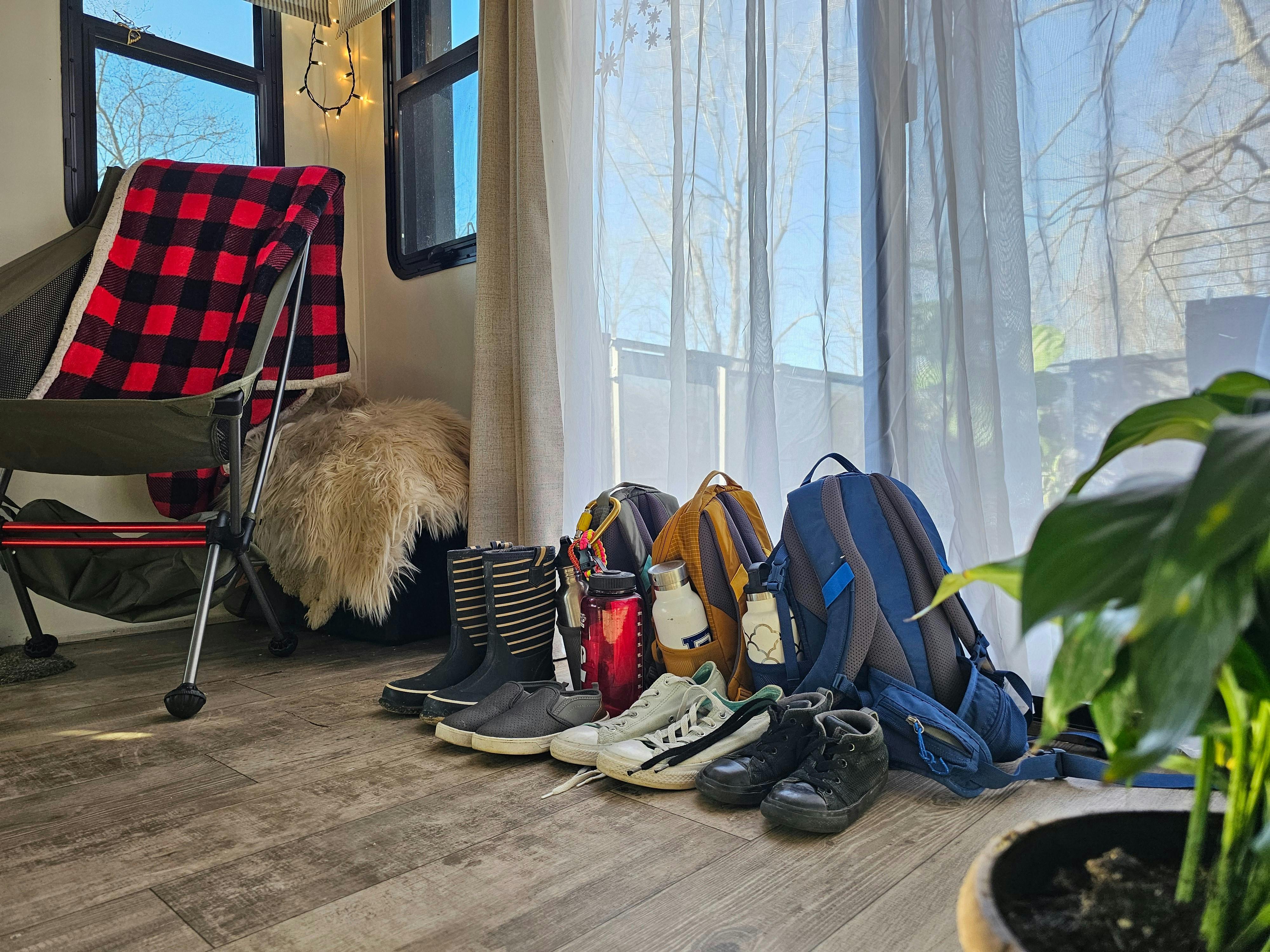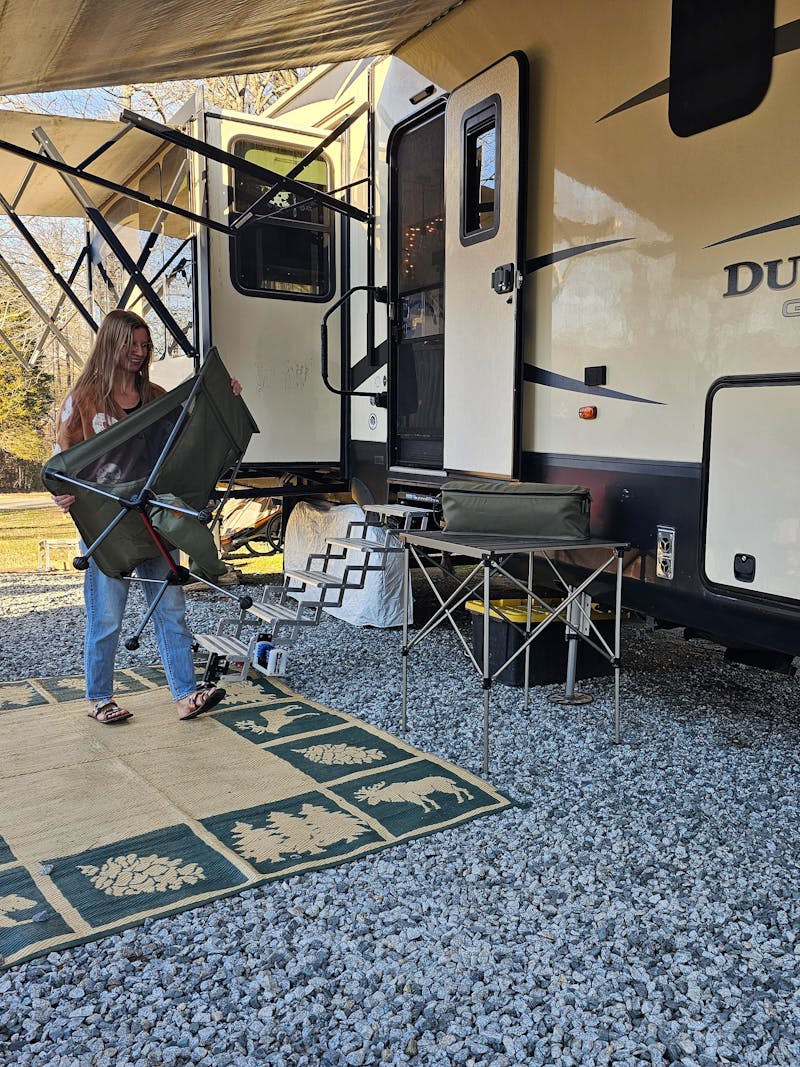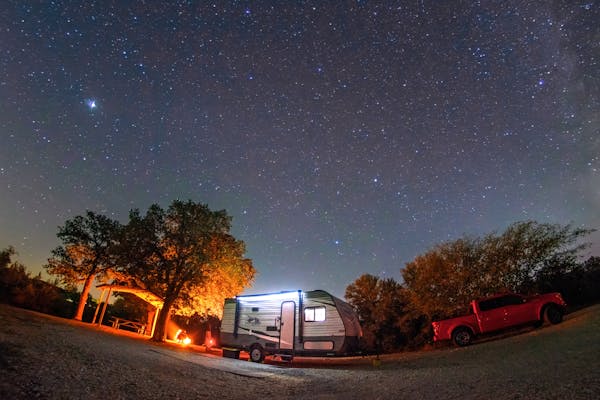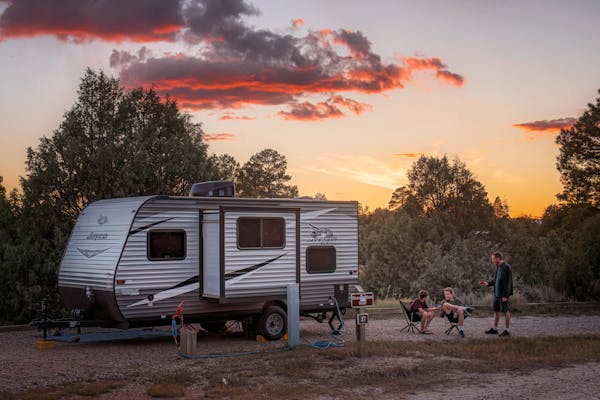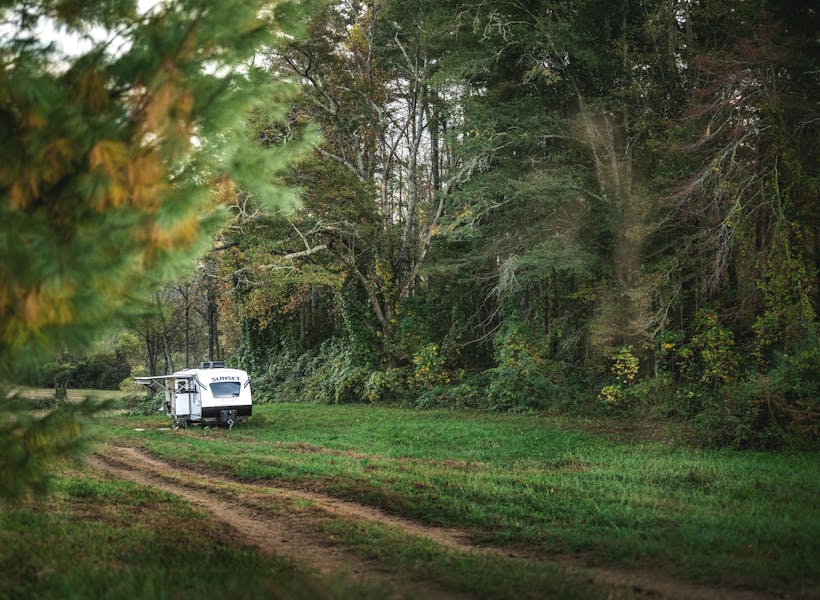Secure Your Campsite
Our first step is to secure everything outside the RV that could become airborne or damaged by the elements. Camping chairs, toys, and even the area rug get tucked away for safekeeping.
While I cherish the coziness and protection an awning offers during light rain, knowing it's safely rolled in brings peace of mind when bad weather is headed our way. So no matter what, the awnings are usually the first things to come in to be protected from the weather. It is also recommended that you always bring your awning in before leaving your campsite for the day, just in case you have unexpected high winds or inclement weather.
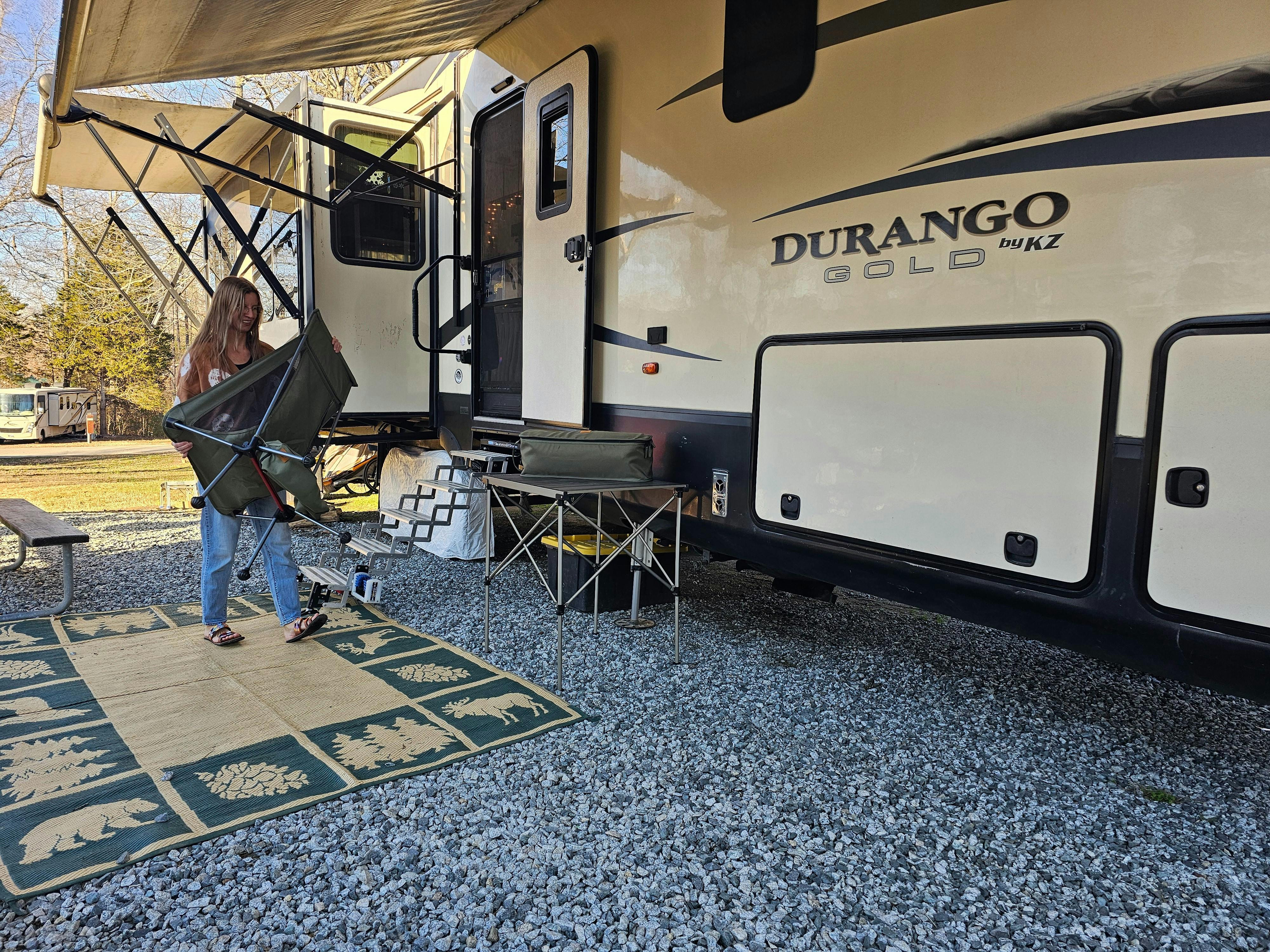
Check Your Propane
When periods of freezing temperatures or high winds are in the forecast, we prioritize checking and, if necessary, refilling our propane tanks.
Since our generator runs on propane, having full tanks ensures a functioning stove to prepare or reheat food and water. It is also needed for warmth during cold spells. The built-in electric fireplace helps keep the inside of the fifth wheel warm while the propane helps keep the floor and underbelly storage warm so the water pipes won’t freeze.
While you’re checking on your propane, be sure to check your drinking water stock, as well. We like to have enough to get us through a day or two if needed.
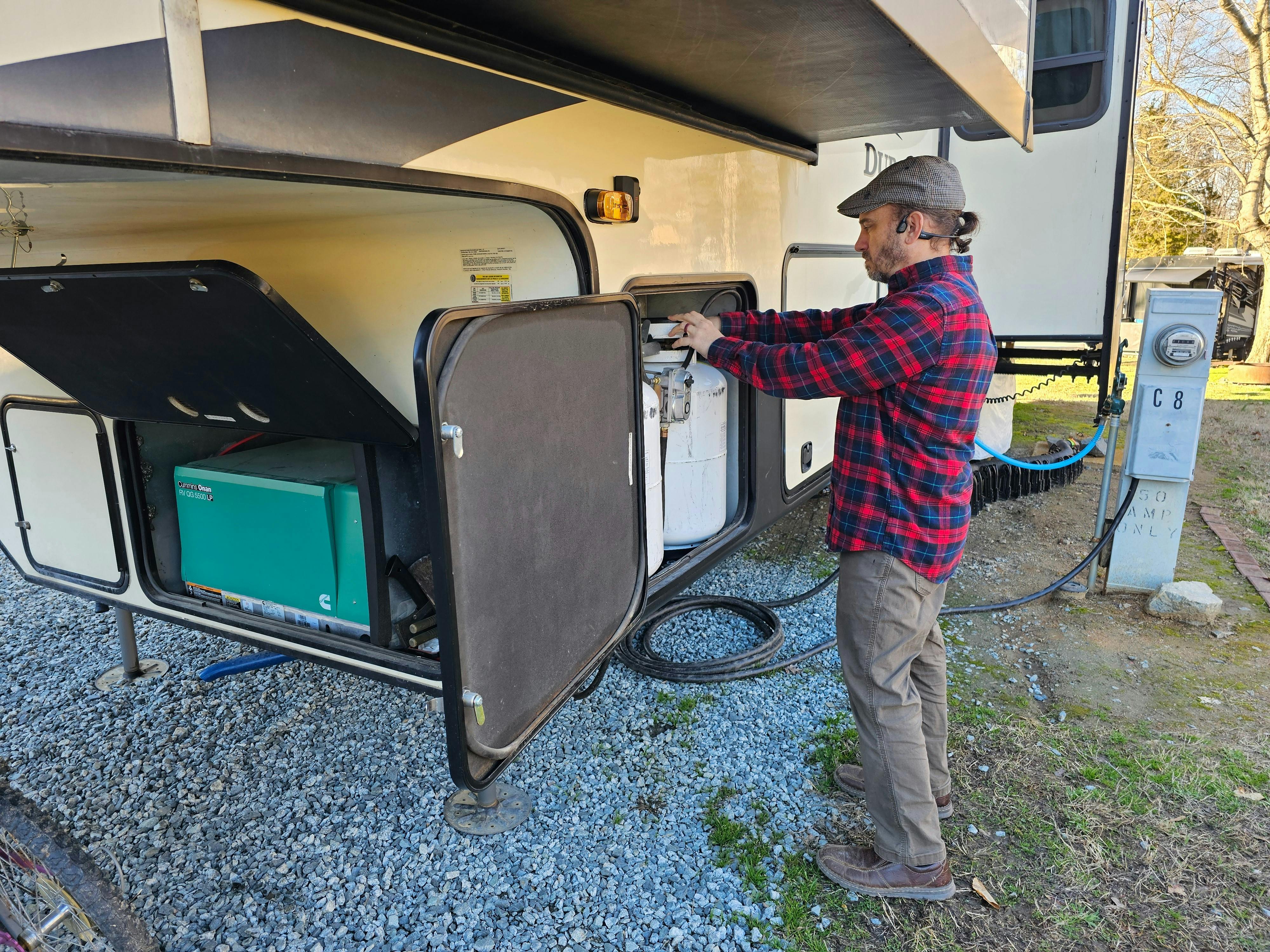
Prepare Emergency Bags
When sudden high winds or, on the rare occasion, tornadoes become possible, I have an emergency preparedness plan that we go by.
Each of our older children carries a designated hiking backpack that is stocked with snacks, water bottles, a first-aid kit, and a few small toys for entertainment during unexpected evacuations. My bag holds essential documents. All of these are either placed by the door to grab when we go out, or I already set them in the truck until the weather recovers.
Easy-to-slip-on shoes are kept by the door, a precaution more for convenience than a necessity, as our priority in a real emergency would be a fast evacuation and heading to the bathhouse or somewhere else where it is safe.
If you are traveling during a season or to an area where inclement weather is likely, be sure to talk through your evacuation plan before arriving. Also, use rangers or campground hosts as a resource to locate safe shelter places within a park or campground.
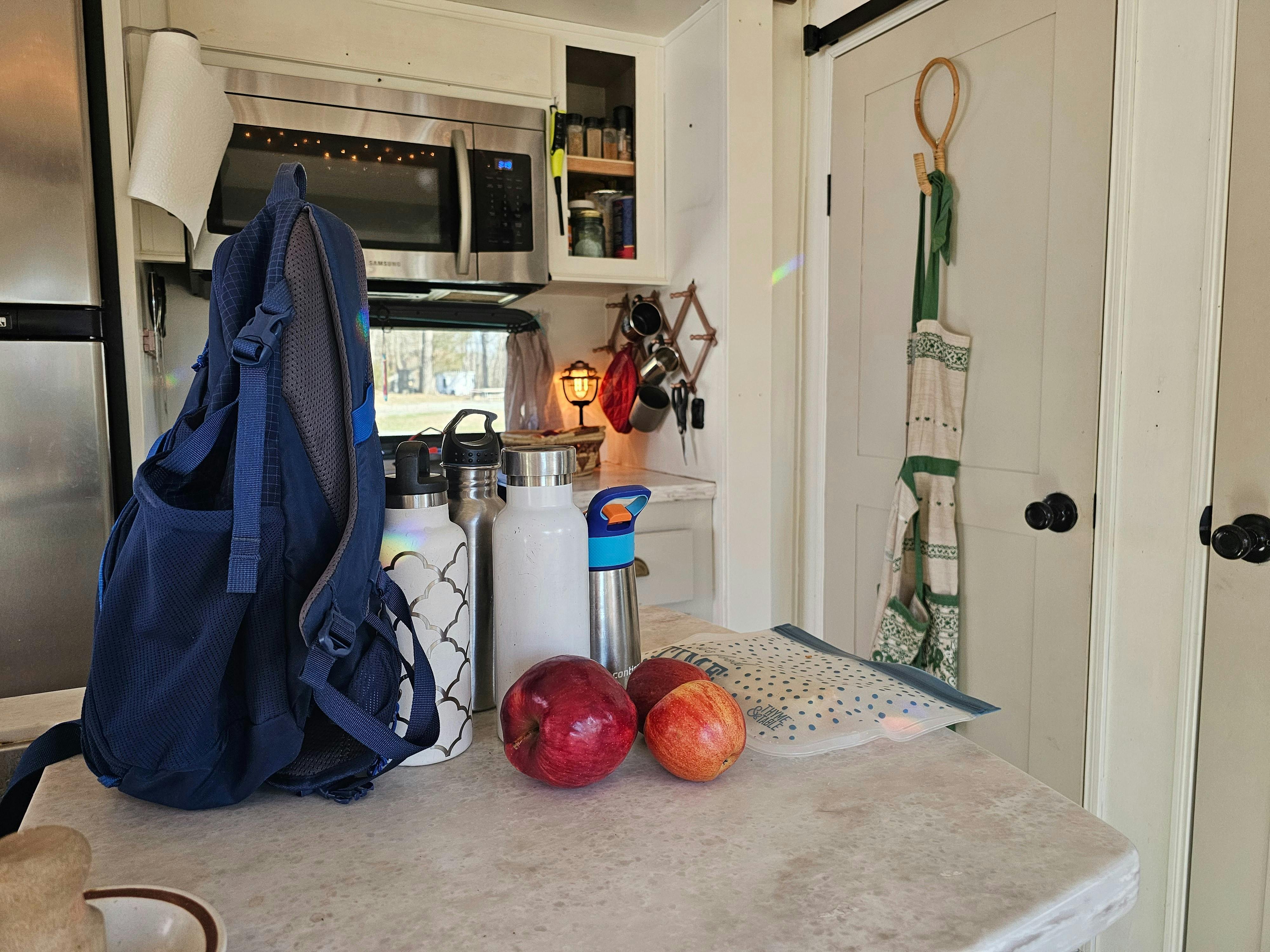
Utilize Calming Habits
Now this one is more of a personal choice, but I found that cooking ahead of time becomes a personal ritual whenever we anticipate inclement weather. It helps me calm my nerves during the pre-storm hype. So when extreme weather is heading our way, after everything is finished—our campsite is cleaned up, the bags are packed, water filled up—you can oftentimes find me in the kitchen
Cooking ahead also allows me to spend less time in the kitchen during the storm and more time snuggling up with my kids, enjoying movies, reading books, or simply relishing family time together. I usually prepare comfort food that everyone likes, bringing a sense of warmth and security during challenging weather conditions.
And there is just something so wonderfully comforting when you get to eat a warm stew with a good book, while the rain is drumming on the RV roof. It’s the next best thing to spending time outdoors.

Know When To Pack Up
Last but not least… Safety remains crucial, regardless of the weather or your preparations. If I ever feel unsafe at our location, my husband and I discuss our situation and determine our game plan.
This may involve packing up our belongings, filling the tanks for extra stability, and even relocating the fifth wheel away from trees. Hotels or heading to nearby family can provide a temporary safe stay for both high winds and freezing temperatures.
Our guiding principle is that the RV, while it holds countless memories, is replaceable. If a situation requires immediate evacuation, we prioritize our safety and leave everything behind, as would we in a home.
Embracing this mindset allows me to approach inclement weather with a sense of calmness and preparedness. By now, I am able to transform it from a burden into an opportunity for family bonding, resilience, and even adventure.
